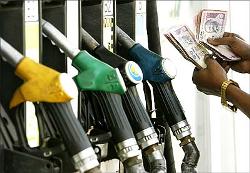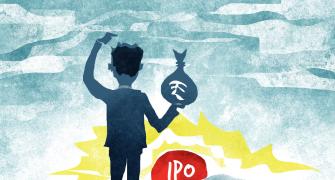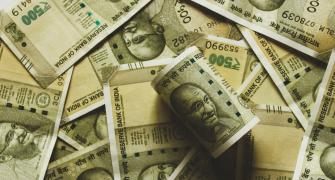 An Indian Institute of Management, Ahmedabad study on the oil sector has suggested radical reforms, including complete deregulation, where private and public sector firms are free to price fuel as they deem fit.
An Indian Institute of Management, Ahmedabad study on the oil sector has suggested radical reforms, including complete deregulation, where private and public sector firms are free to price fuel as they deem fit.
"Reform of the oil sector is long overdue. The problems in the sector emanate from the structure of central taxes and the system of subsidisation through prices," the study said.
Currently, the government controls prices of petrol, diesel, domestic liquid petroleum gas and kerosene and compensates public sector firms through a complex mechanism that has squeezed out liquidity with the retailers and drained resources of upstream firms.
It gives oil bonds to make up for a part of the revenue lost on selling fuel below cost and asks upstream operators like Oil and Natural Gas Corporation to bear the rest.
"The social and fiscal costs arising out of the current method of subsidisation, and taxation are very severe," it said Suggesting radical reforms, the study said, "Complete deregulation of the sector allowing oil producers, oil refiners, marketing companies, and integrated operators to price their products as they deem fit" is needed.
It said the fiscal costs were very large and much larger than that reported in the budget since they do not include the costs of diversion and tax avoidance that result from differential pricing.
"Thus in the case of kerosene the cost of delivering Rs 2,000 crore (Rs 20 billion) to the BPL consumers was in excess of Rs 24,000 crore (Rs 240 billion)."
The social losses (of present system) include, misuse/wasteful use of scarce petroleum resources, diversion, adulteration, other avoidable negative externalities, improper substitution between products, tax arbitrage, distortion of consumer preferences and input choices of industries, and international cross hauling of petroleum.
"There is sufficient degree of competition in refining, marketing and retailing to ensure that (fuel) prices across locations do not vary by more than the difference in logistic costs of delivery to the locations from the cheapest sources," the study said.
The public distribution system, it said, was 'not necessary and ought to be dismantled.'
Subsidies should be administered through endowments defined upfront, the study suggested.
"The political difficulties in carrying out tariff reform have been exaggerated. Earlier, expert committees have ignored the use of direct endowment subsidies, which potentially could remove the distortions by liberating subsidies from prices. Such an approach by preserving and enhancing consumer benefits to the subsidised sector can only be politically rewarding."
Excise duty needs to be recast into a value added tax, as for any other product, so as to allow input credit for all registered intermediate users of petroleum products, including the oil companies themselves, leaving out only truckers, taxi operators and other small intermediate users.







